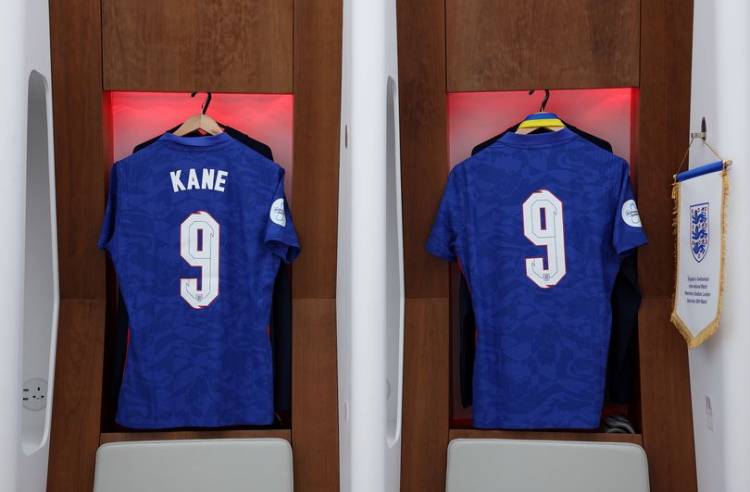
The English men’s national football team is hoping a gesture made during a game over the weekend opens eyes to the extent and the severity of dementia in people of all ages.
After playing the first half in their regular blue away kits, the team emerged from the dressing room for the second half of their international friendly against Switzerland on Saturday evening at London’s Wembley Stadium with no names on the backs of their jerseys.
The gesture was meant to raise awareness for the Alzheimer’s Society in the United Kingdom and “draw attention to how people with dementia lose precious memories, even the names of their favourite football players,” according to England Football.


“For an England fan, it’s almost unthinkable you would forget the name of a player in the national team. But for many of those watching the game who are living with dementia, this is a reality. It’s hoped that by making one simple alteration to the England shirt, for 45 minutes, people can place themselves in the shoes of people with dementia.”
— EnglandFootball.com
Over 900,000 people live with dementia in the U.K., according to England Football — a population that could fill Wembley Stadium 10 times over. More than 40,000 of those are under the age of 65.
The match-worn shirts are being auctioned off to raise money to fund the Alzheimer’s Society’s work across the U.K.
“As the squad walk out in these thought-provoking shirts, we hope it will get fans up and down the country to sit up and take note of the reality of living with dementia,” said Alzheimer’s Society CEO Kate Lee. “Football should be unforgettable — I hope it makes a massive impact that ripples from the Royal Box to the stands and into homes across the nation, inspiring people to support our work to raise awareness and reduce stigma and help us make sure no-one faces dementia alone.”
England players also wore Alzheimer’s Society patches on the right sleeves of their uniforms in both halves of Saturday’s match.

The FA and the Alzheimer’s Society are partnering for several initiatives over the next two years, which aims to:
- raise vital funds towards crucial support services;
- ensure employees, players, former players and fans are referred to expert dementia support;
- help tackle the stigma surrounding the condition, by raising greater understanding of dementia among the footballing community;
- create a network of dementia friendly facilities and upskill The FA’s employees, so people living with dementia and their families can confidently return to and stay connected to the game they love; and
- further understand the cause of dementia and its risk factors, ensuring The FA is prioritising and funding world-class research to best protect players for generations to come.
Feature photo courtesy Manchester Evening News











